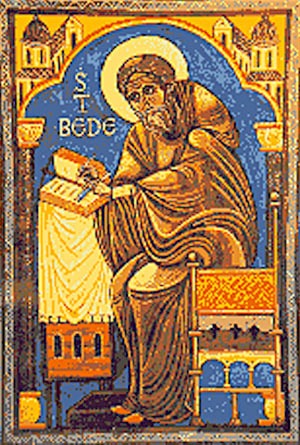p. 19
Of Friedrich Wilhelm Nietzsche it has been said that his peculiar contribution to the cause of human hope was the glad tidings that God had died of pity! The outstanding features of Nietzsche’s philosophy are his doctrine of eternal recurrence and the extreme emphasis placed by him upon the will to power–a projection of Schopenhauer’s will to live. Nietzsche believed the purpose of existence to be the production of a type of all-powerful individual, designated by him the superman. This superman was the product of careful culturing, for if not separated forcibly from the mass and consecrated to the production of power, the individual would sink back to the level of the deadly mediocre. Love, Nietzsche said, should be sacrificed to the production of the superman and those only should marry who are best fitted to produce this outstanding type. Nietzsche also believed in the rule of the aristocracy, both blood and breeding being essential to the establishment of this superior type. Nietzsche’s doctrine did not liberate the masses; it rather placed over them supermen for whom their inferior brothers and sisters should be perfectly reconciled to die. Ethically and politically, the superman was a law unto himself. To those who understand the true meaning of power to be virtue, self-control, and truth, the ideality behind Nietzsche’s theory is apparent. To the superficial, however, it is a philosophy heartless and calculating, concerned solely with the survival of the fittest.
Of the other German schools of philosophic thought, limitations of space preclude detailed mention. The more recent developments of the German school are Freudianism and Relativism (often called the Einstein theory). The former is a system of psychoanalysis through psychopathic and neurological phenomena; the latter attacks the accuracy of mechanical principles dependent upon the present theory of velocity.
René Descartes stands at the head of the French school of philosophy and shares with Sir Francis Bacon the honor of founding the systems of modern science and philosophy. As Bacon based his conclusions upon observation of external things, so Descartes founded his metaphysical philosophy upon observation of internal things. Cartesianism (the philosophy of Descartes) first eliminates all things and then replaces as fundamental those premises without which existence is impossible. Descartes defined an idea as that which fills the mind when we conceive a thing. The truth of an idea must be determined by the criteria of clarity and distinctness. Hence Descartes, held that a clear and distinct idea must be true. Descartes has the distinction also of evolving his own philosophy without recourse to authority. Consequently his conclusions are built up from the simplest of premises and grow in complexity as the structure of his philosophy takes form.
The Positive philosophy of Auguste Comte is based upon the theory that the human intellect develops through three stages of thought. The first and lowest stage is theological; the second, metaphysical; and the third and highest, positive. Thus theology and metaphysics are the feeble intellectual efforts of humanity’s child-mind and positivism is the mental expression of the adult intellect. In his Cours de Philosophie positive, Comte writes:
“In the final, the positive state, the mind has given over the vain search after Absolute notions, the origin and destination of the universe, and the causes of phenomena, and applies itself to the study of their laws,–that is, their invariable relations of succession and resemblance. Reasoning and observation, duly combined, are the means of this knowledge.” Comte’s theory is described as an “enormous system of materialism.” According to Comte, it was formerly said that the heavens declare the glory of God, but now they only recount the glory of Newton and Laplace.
Among the French schools of philosophy are Traditionalism (often applied to Christianity), which esteems tradition as the proper foundation for philosophy; the Sociological school, which regards humanity as one vast social organism; the Encyclopedists, whose efforts to classify knowledge according to the Baconian system revolutionized European thought; Voltairism, which assailed the divine origin of the Christian faith and adopted an attitude of extreme skepticism toward all matters pertaining to theology; and Neo-Criticism, a French revision of the doctrines of Immanuel Kant.
Henri Bergson, the intuitionalist, undoubtedly the greatest living French philosopher, presents a theory of mystic anti-intellectualism founded upon the premise of creative evolution, His rapid rise to popularity is due to his appeal to the finer sentiments in human nature, which rebel against the hopelessness and helplessness of materialistic science and realistic philosophy. Bergson sees God as life continually struggling against the limitations of matter. He even conceives the possible victory of life over matter, and in time the annihilation of death.

Moe is the founder of GnosticWarrior.com. He is a father, husband, author, martial arts black belt, and an expert in Gnosticism, the occult, and esotericism.


